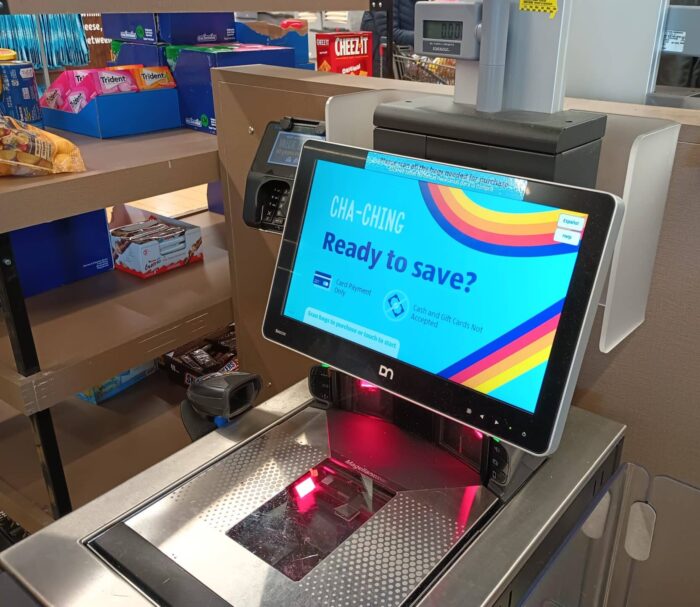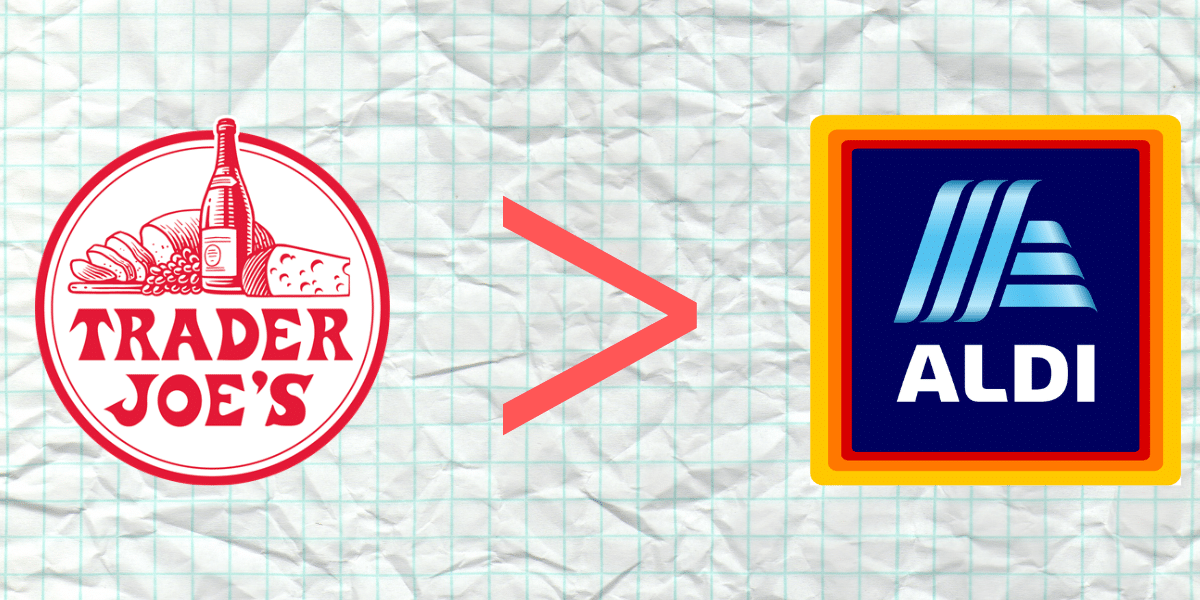
Image by Gerd Altmann from Pixabay
EDITOR’S NOTE: Like all posts on Aldi Reviewer, this piece is the opinion of its respective authors. Also like all posts, comments are welcome, although we ask users to be mindful of our Community Guidelines.
Aldi has proven to be a smart company. Not a perfect one, mind you, because no company is. But a smart one. You don’t get to where Aldi is, as one of the most successful grocers in the world, by being stupid.
So what has Aldi done? What’s the secret formula? While the details are complex, the big picture, I think, is straightforward. Aldi has made some overarching decisions that have helped enable the company to be the grocery superpower that it is today.
Here are five of those decisions.
Chosen Not to Go Public
Stock is a share of ownership in a company. Most of the biggest companies publicly sell stock, including Walmart, Kroger, and Amazon. Stock gives companies a huge infusion of cash that they can use to expand their operations, not to mention make the owners filthy rich.
Aldi doesn’t sell stock. You cannot buy shares of the grocer.
Far from being a negative though, this gives Aldi some serious advantages. The grocer isn’t beholden to stockholders, so instead of just fixating on quarterly profits, Aldi can play the long game. It can lower prices, expand, and do other things with an eye toward profitability five, ten, or even twenty years down the road. It has made Aldi a disciplined, and ultimately more effective, company.
Grown Deliberately
I will be the first to admit that I wish Aldi had a greater presence in the United States. There are wide swaths of the country that have no Aldi stores, to say nothing of Canada. I feel for those shoppers who wish they had the low prices and middle aisle items that the German grocer offers.
I also can’t argue with the reasoning. More than one company has hurt itself by overextending, especially when the economy is doing well, only for things to bottom out later. Aldi is definitely a company that is expanding, but it is doing so at a deliberate and sustainable pace, establishing supply lines and making sure that where it goes, it will stay.
Improved Its Product Quality
Aldi in the 1980s was not a place shoppers went for quality. It was a stock-up store, a home to nondescript products whose price tags matched their taste. At some point, though, the company realized that wasn’t good enough to compete. So Aldi figured out how to improve quality while also holding a line, relatively speaking, on price. Today, Aldi consistently ranks high in low prices, but Aldi shoppers also like the stuff they buy. That’s the biggest win-win of all.
Shown a Willingness to Innovate
Aldi doesn’t stand still. If you went into an Aldi store in 1980 or even 2000, you would see a lot of nondescript products, not much of excitement, and you’d be paying for it with cash or perhaps a debit card. Aldi has made many changes since then, whether it’s bringing credit and wallet pay into the fold, or spicing up the middle aisle, or even adding self-checkout. The grocer has also systematically updated most of its existing stores while adding thousands of new ones.
Aldi doesn’t seem done yet. In the UK, Aldi is piloting checkout-free technology. The store is constantly tweaking its food lineup. And every year we see new wrinkles in the middle aisle. Clearly the grocer always keeps an eye to the future.
Stayed Within Its Vision
One risk of change and innovation is losing one’s identity. Many companies have lost their way because they strayed from their original vision — a problem that can become greater when that original vision proved a timeless one.
Aldi’s business vision appears to be one of efficiency, speed, and low prices, and throughout all its changes it has kept to those ethics. There are times I don’t always like what Aldi does — I’m not sure I like self-checkout, for example — but I admit that such changes often fit the store’s vision.
As long as Aldi keeps its way, I suspect it will continue to be a successful company.









Thank you this was very informative! I LOVE ALDI!!!
The store is alway stock well some things change and that is a cost effective I’ve way to try them.. every one they works there seems to be happy, informative and polite!!! BIG PLUS!!!
I don’t like self-checkout…it seems to encourage people to steal by buying one item (say, a roast) and run a plg of hamburger twice and never pay for the roast.
My own person feeling regarding self-check out from one of the smallest reasons ~ the bells are a constant source of irritation to me. Probably the most important though ~ we have enough non-communicating resources to call upon in our life today. Is it truly that important not to have to wait for a ‘human exchange’ at the check-outs??? The world is already a ‘non-communicating one!
My opinion about self-checkout is that is taking a job away from someone who may need that income. Also, I have watched, half the time the stupid machine does not register your scan, tells you to scan the same thing again, tells you to do something else, there are too many problems. Then the customer has to wait for either another cashier to stop and come over, or wait for the person standing there as a watchdog comes over to help.
In my opinion, these self-checkouts, takes away personal interaction. When you go into a store enough, you get to know the cashiers, the section managers, packers etc. Where you have short conversations, ask how their family is or how did some event go, how they are feeling. You get friendly and it makes a difference in both your days!
You have some valid concerns. I do wonder … in an era when retailers are struggling to fill low-paying jobs, is self-checkout really taking a job away from someone?
I believe it is, it’s just not that obvious to see how it is. Plus it doesn’t do anything to keep prices lower because they have and will continue to go up anyway regardless of self-checkouts. It cost them money to put in the self checkouts so it has actually increased their expenditures in the short run. They won’t see any benefit from it for a while and the customer will likely never see any benefit from it except for maybe shortening the wait to get to a register since they weren’t putting that many cashiers on duty at one time anyway.